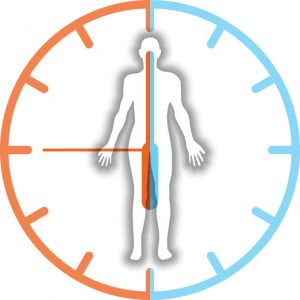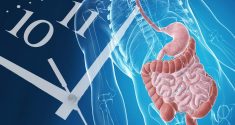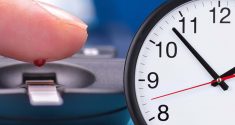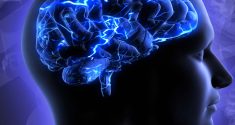More than 50 percent of Americans use coffee and other caffeinated beverages on a regular basis. Coffee has been referred to as a social lubricant, with many business deals and relationships built over a steaming cup. However, a cup of coffee in the afternoon or evening may be having negative health effects of which caffeine lovers are unaware.
How Caffeine Affects Circadian Rhythm
Your circadian rhythm is essential to health and good function. The bodies of humans and other mammals release hormones that cause sleepiness, wakefulness and other mental states throughout a 24-hour day. Not only do these hormones affect our mental state, but they affect our cells in a variety of ways. A diverse range of diseases from diabetes to heart disease to cancer have been found to be linked to disruptions in the internal clocks that regulate every process in our body.
However, things that we eat and drink can affect these circadian rhythms. Caffeine is a popular stimulant because it increases our wakefulness and alertness in a relatively safe manner. According to a new chronobiology study, part of these effects comes from caffeine’s effect on melatonin. Produced in response to darkness, melatonin is the main biochemical associated with sleep. Melatonin is responsible for a variety of sleep-related processes including falling asleep, staying asleep and moving through sleep cycles in a way that allows quality, restful sleep.
Caffeine and Night Owls

Unfortunately, this disruption of the circadian rhythm can become a negative cycle. People who don’t sleep well use caffeine to compensate, which then disrupts their sleep cycles even more and necessitates additional caffeine. This study found a strong correlation between night owl chronotypes and caffeine intake. Many people who think that they are night owls may simply need to drink less coffee and get into a health sleep pattern.
Can Caffeine Sometimes Help?
While disrupting one’s circadian rhythm is never good for health, there are times when it is necessary. Timing caffeine intake may be beneficial for people with jet lag or other circadian rhythm disturbances, those who actually need to release sleep-related hormones later to adjust their sleep cycle.
Restoring Healthy Circadian Rhythm

Maintaining a healthy sleep cycle in modern times can be difficult, but it is necessary for optimal health and disease prevention. As this study suggests, restricting caffeine to morning hours is one way that you can help keep your circadian rhythm healthy.







